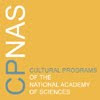to comment on this post, click on "comments" below
to return to main page go to www.visualcultureandbioscience.org
From: Troy Duster
Date: Tue, 06 Mar 2007 17:19:12 -0500
Greetings to all!
I have just returned from Europe, and am sitting in a transit lounge at Dulles airport en route to yet another destination.
Since my recent interests have centered on the sociology of science, I will probably have much more to say in the third session, but here is a start:
I am fascinated by the relationship between pictoral image and scientific authority, and depending upon the domain of inquiry, that authority can be placed along a continuum from "nearly definitive" to "merely anecdotal." In recent work in the neuro-sciencies, for example, brain imaging technology permits certain claimants to assert, with extraordinary authority, that
the way the brain circuits seem to "light up" in response to selected stimuli provides evidence for some complicated neurological process (e.g., racial prejudice when viewing images of members of different racial categories). The conclusion reached in some of these circles is that such attitudes must be "hard wired." Of course this bypasses the prior question about how "those wires" got to be that way -- but on the matter of "authority" -- it is precisely this "bypass" that captures so much attention (as knowledge production?). Upon closer inspection, the various colors assigned to different images of how the brain circuits are firing is a decision by the researcher, and NOT how the brain "lights up."
At the other end of that continuum is the relative lack of authority of the pictorial image of social processes. The more textured, detailed and nuanced, the more specific to time and place and manner -- thus rendering the images vulnerable to being dismissed as "merely anecdotal" in the jockeying for positional authority from skeptics or counter claimants.
That will have to do for now.
Troy Duster
Director, Institute for the History of the Production of Knowledge
New York University
to comment on this post, click on "comments" below
to return to main page go to www.visualcultureandbioscience.org
Subscribe to:
Post Comments (Atom)

No comments:
Post a Comment